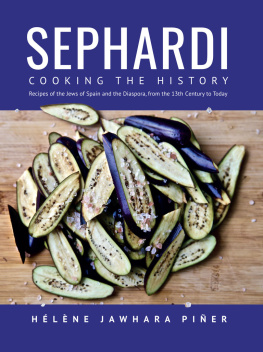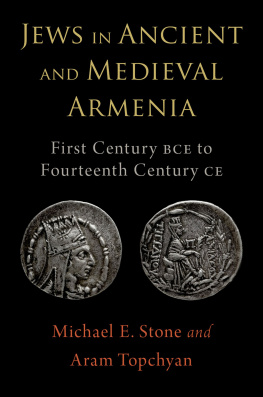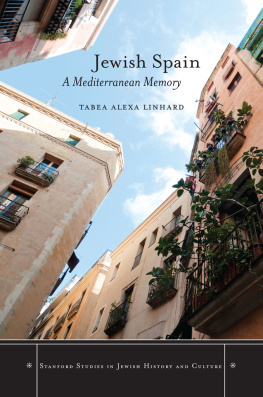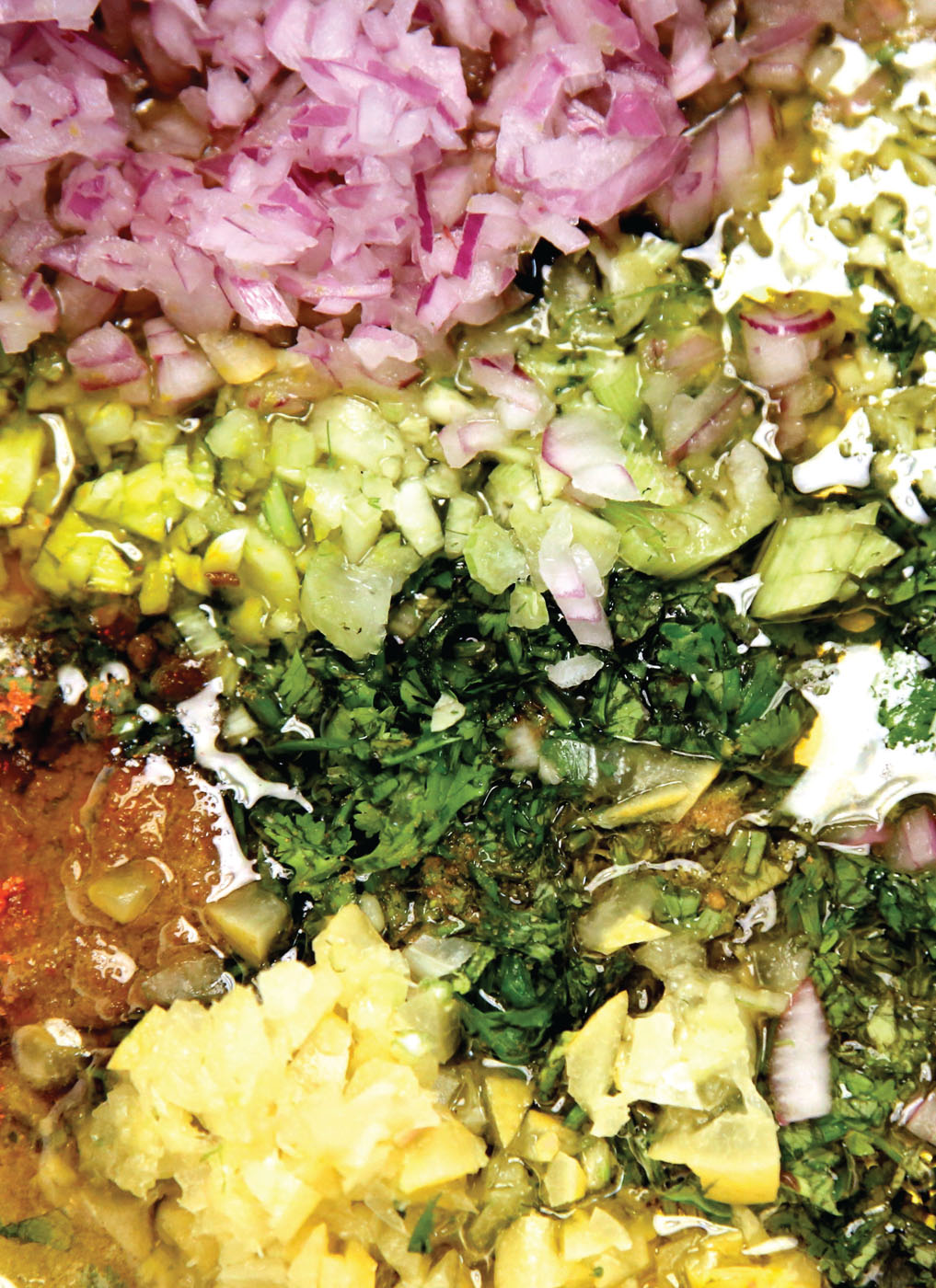Contents
SEPHARDI
COOKING THE HISTORY
Recipes of the Jews of Spain and the Diaspora,
from the 13th Century to Today
Hlne Jawhara Pier
Preface by David Gitlitz
Boston
2021
Library of Congress Cataloging-in-Publication Data
Names: Pier, Hlne Jawhara, author.
Title: Sephardi : cooking the history, recipes of the Jews of Spain and the diaspora, from the 13th century onwards / Hlne Jawhara Pier.
Description: Boston : Cherry Orchard Books, 2021.
Identifiers: LCCN 2020045212 (print) | LCCN 2020045213 (ebook) | ISBN 9781644695319 (hardback) | ISBN 9781644695326 (adobe pdf) | ISBN 9781644695333 (epub)
Subjects: LCSH: Sephardic cooking. | Jews--Food--History. | LCGFT: Cookbooks.
Classification: LCC TX724.2.S47 P56 2021 (print) | LCC TX724.2.S47 (ebook) | DDC 641.5/676--dc23
LC record available at https://lccn.loc.gov/2020045212
LC ebook record available at https://lccn.loc.gov/2020045213
Copyright 2021 Academic Studies Press
All rights reserved.
Book design by PHi Business Solutions.
Cover design by Ivan Grave.
Cover photo by Hlne Jawhara Pier.
Publisher by Cherry Orchard Books, imprint of Academic Studies Press.
1577 Beacon St.
Brookline, MA 02446
www.academicstudiespress.com
A mi abuela,
Ana Guillen Palma
In memory of my friend, my mentor,
David Gitlitz
FOREWORD
Like many cookbooks, the one that you have in your hands is a miscellany. Unlike most of them, you will find that this one comes with a heart, a spine, a soul. Its spine is the resilience of a thousand years of Sephardi cooks, living in minority enclaves surrounded by powerful, attractive, and frequently unfriendly majority cultures; cooks who retained the essence of their Jewish culinary heritage and transmitted it from mother to daughter, and sometimes even from parents of both genders to their diverse children. Its heart beats to the rhythms of the Jewish week and liturgical year, Shabbat, Sukkot, Pesach, Yom Kippur, the fasts and feasts, the tables around which Jewish families gathered from season to season and from century to century. Its soul is nurtured in a faith that despite the hatred and fear, the Inquisitions and the pogroms, the silent discriminations and the seductive attractions of assimilation, the kitchens of Sephardi descendants in Spain, in Portugal, and in all the lands of the great Sephardi diaspora are, and will forever be, cooking Jewish.
Hlne Jawhara Pier is perhaps uniquely prepared to confect this cookbook. She is an accomplished chef and an experienced communicator. Her doctorate, from the French University of Tours, acknowledges her work in two intimately intertwined fields, medieval history and the history of food. Her skills as both a chef and teacher have been frequently showcased at festivals and on television.
Most of us are familiar with the broad outlines of the history of the Jews of Spain and Portugal. How their origin dates back to second century Roman expulsion of the Jews from Jerusalem and Palestine. How these displaced Jews often struggled during their early centuries in the Iberian Peninsula under Romans and Visigoths, and how they thrived during the 800-year rule by Muslim kingdoms. How the tiny Christian enclaves in the peninsular north resisted the Muslims and gradually pushed south and grew into the large kingdoms of Castile and Aragon, and their smaller neighbors Navarre and Portugal. How the Jews who had now come to be living under Christian rule were increasingly persecuted. How when in the late 1400s Castile and Aragon united under Ferdinand and Isabel, the self-styled Catholic Monarchs, Jews were offered the choice of conversion or exile. And how the religious behavior of those who chose to convert and remain as Christians was rigorously policed by the Inquisition.
We tend not to be familiar, however, with the rich and complex culinary traditions of the Iberian Peninsula, its mixture of Celtic, Iberian, Roman-Mediterranean, Germanic, and North African styles and flavors and aromas. Iberian Jews steeped themselves in these traditions and then did what Jews have always done. Using the ingredients at hand at the particular time and place where they happened to be living, they adapted these local cuisines to the Jewish dietary restrictions, and created from them their everyday meals, their Sabbath stews, and their special flavors and treats for the cycle of Jewish holidays. Few scholars are as immersed in the history and the particulars of these adaptations as is Hlne Pier.
The beauty of this book is the way that Hlne explains the culinary world of medieval Iberian Jews and, with examples and anecdotes, brings those long-ago cooks to life. She almost always draws her material from contemporary medieval sources, gleaned from data found in documents written in more languages than many of us speak, always with the goal of creating tasty representative recipes that can be prepared in modern kitchens by cooks at any level of culinary skill.
Thats the first half of the book. In the second, Hlnes curiosity journeys to the Jews of the Sephardic diaspora, the countries where the Spanish and Portuguese exiles settled. There, just as in their ancestral homes in Iberia, they incorporated the products and techniques of those new lands into their repertoire of Sabbath and holiday creations. And lastly, as if to exemplify for us this centuries-old pattern of relocation, adaptation, and creation, Hlne treats us to a few recipesvery traditional and yet brand newthat she has created in her own kitchen.
So read, and cook, and enjoy! Wrap your nose around the aromas of far-off spice markets and bubbling Sabbath stews. Treat your tongues to the flavors of Sephardic history.
Bon appetit! Buen provecho! !
David Gitlitz
INTRODUCTION
This cookbook is unique. It is not based on family recipes but on the history of the Jewish people from Spain, and by extension the Sephardim, from the thirteenth century to the present day. It is a cookbook derived from historical sourcesbe they culinary, judicial, literary, or medicalfrom the East and the West. Its recipes were prepared over five years as part of my doctoral research in history, which traces and uncovers the existence of dishes prepared for and by Sephardic Jews. This is also a cookbook that reveals social issues of the time: the vast majority of these dishes were prepared in societies rife with anti-Semitism, where food served as a tool to denounce the liturgical practices of the Jews.
Origin
Sephardi: in order to unders tand the subject of this cookbook, we need to remember what this term means. Sefarad is the Hebrew word for Spain. The name goes back to the book of Obadiah () verse 20, where the terms Tsarfat and Sefarad appear:
... ,
Although those terms in context must refer to places in Mesopotamia, in medieval Europe the names Tsarfat and Sefarad were assigned by Jews respectively and retroactively to France and Spain so as to claim that Jews were present in the West before Jesus was crucified, and therefore could bear no responsibility for the act.
Sephardim is the name originally given to the Jews from Spain and Portugal after 1492, and was later applied to all Jews of the Iberian diaspora.












